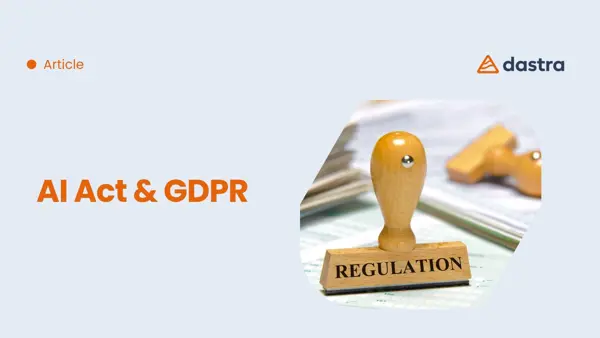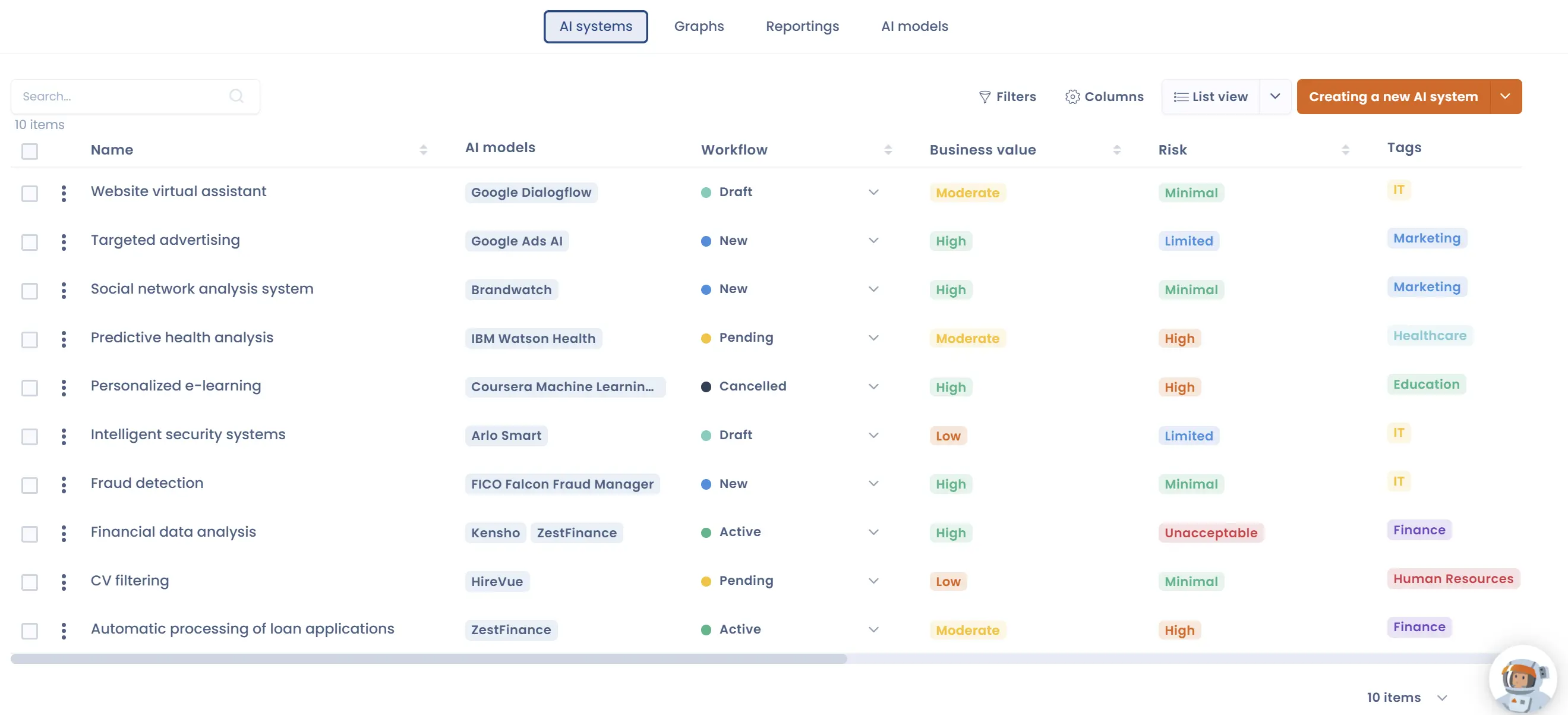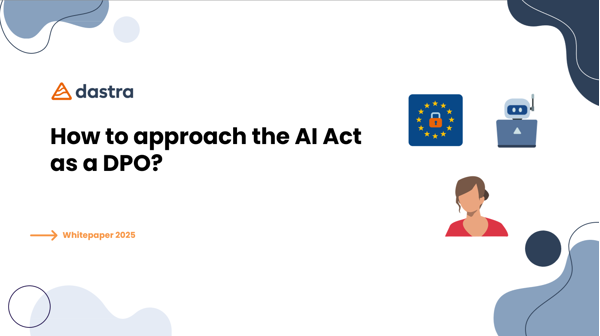
AI Act & GDPR
The European Regulation on AI (or AI Act) was recently published in the Official Journal of the European Union. Who is a...
The AI Act is the European regulation that governs AI based on a risk-based approach. It prohibits unacceptable risk systems, imposes strict requirements for high-risk systems, and provides transparency obligations for others. The goal: to ensure safe, ethical AI that respects fundamental rights.
Complying with the general data protection regulation is much more than a legal obligation, it is:
We support you in your preparation by strengthening your data governance, personal data protection, and security programs to integrate the use of AI.
Enjoy a comprehensive and detailed view of your artificial intelligence systems: anticipate risks, identify opportunities, and enhance your strategy for managing models and datasets in just a few clicks.
View moreEasily classify and assess your AI systems according to the standards of European regulation. Accelerate the assessment of third-party systems and optimize compliance management. Combine this level of risk with the evaluation of the business value brought by this system.
Deploy your policies effectively by translating guidelines into technical actions. Automate notifications, task assignments, and updates to ensure seamless execution.
Generate dashboards, impact analyses, and compliance assessments for your stakeholders. Provide your ecosystem with complete visibility into your AI models and their compliance performance.


The European Regulation on AI (or AI Act) was recently published in the Official Journal of the European Union. Who is a...

Download the support for the presentation “How to approach the AI Act as a DPO?” on Febuary 13, 2025 at the DPO Forum Lu...
The AI Act is marketed in a dedicated or complementary module of the Privacy offerings. Depending on the number of employees in your company, the subscription amount will vary. Please consult our pricing page or contact us to learn more.
The approach to AI systems is based on a risk assessment. The regulatory framework defines four categories of risk for artificial intelligence systems (AIS), with varying levels of regulation depending on the different levels of the pyramid.
The AI Act aims to create a harmonized legal framework in the EU to ensure that artificial intelligence systems are safe, transparent, ethical, and respect fundamental rights. More specifically, it has the following objectives:
The AI Act, or Regulation on Artificial Intelligence, is a regulation developed to regulate and encourage the development as well as the marketing of artificial intelligence systems within the European Union. Proposed by the European Commission in April 2021, the AI Act came into effect on July 12, 2024, after three years of negotiations.
Understanding the distinction between an AI model and an AI system is important for anyone interested in artificial intelligence, whether for developing new technologies or using them.
AI models are the fundamental components that perform specific tasks, while AI systems integrate these models into complete and functional solutions to address practical needs.
By recognizing these differences, one can better appreciate the complexity and scope of AI applications in various fields.
An AI model is a central component of artificial intelligence. It is a mathematical or statistical representation of a specific problem, developed from data.
AI models are trained to recognize patterns, make predictions, or make decisions based on data.
The most common types of AI models include neural networks, decision trees, support vector machines, and regression models.
Examples of AI models include:
The AI model is somewhat like the brain of AI. It is built and optimized through a training process, where it learns from historical data to improve its accuracy and efficiency.
An AI system is a broader and more complex application that integrates one or more AI models to accomplish a specific task.
It encompasses not only AI models but also the necessary components to collect, process, and analyze data, as well as interact with users.
In other words, an AI system is a complete solution that implements AI models within an operational framework.
Components of an AI system include:
Example of an AI system includes:
Scale and Complexity:
Components:
Functionality:
List your AI use cases and identify associated risks within Dastra.
Dastra.eu is free to try, easy to set up, and work seamlessly together.
Free 30 day trial - No credit card required - No commitment

* You can unsubscribe at any time using the link provided in each newsletter.